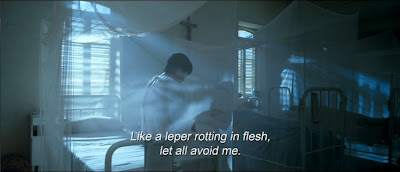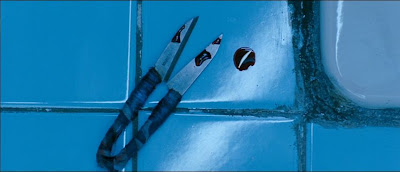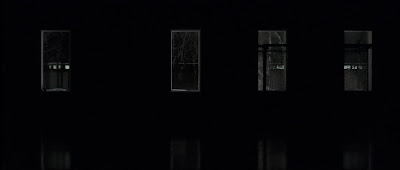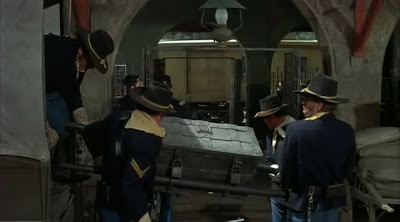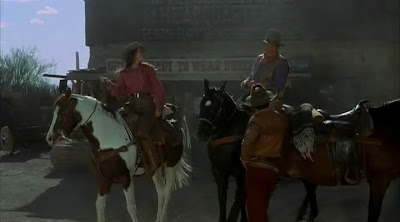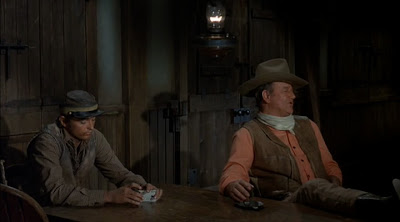
IN any case - the first one is the horror film - a tight, clean story, maybe the best story of the early Universal horror films - an economically told nightmare. The horror comes fairly straight, the shocks and spectacle played as shocks and spectacle, with far less of the operatic parody of the second one. Everything is to the point - though even here, a good part of the point is an ironic one. The monster - his first act is to reach of the light - he’s thwarted at every turn, hurt and abused, and blamed when he fights back or protects himself. Abandoned by his makers, set loose in the world, which he tragically misunderstands - that’s all there. Those elements get replayed in the second one, with a few more twists, and a lot more comedy - though the archness, the sense of the absurd, that animates the second one is present in the first as well. Technically, of course, is a triumph. The cast is superb - Karloff is miraculous, glorious looking and giving a stunning performance without saying a word.

The second one is even better. This film is different than the first of course - funnier - essentially a dark comedy all the way through. There is conventional comic relief in the first one - in the second one, the conventional comic relief (the very grating Una O’Conner) plays like comic relief from the much darker, and funnier, comedy of Pretorius. (Or is it the other way? Is Pretorius meant as a sophisticated, ironic, relief from the overplayed antics of the conventional clowns? Might be - O’Conner, particularly, is playing to the back of the hall - she’s very close to being a self-parody.) Though it is also a deeper, more serious work than the first one - the scene with the Hermit is meant to be taken straight (though it is seeded with jokes and ironies and what look like elaborate parodies of something); the ending - is almost heartbreaking. “We belong dead!” - the Bride’s hiss - the last shot of the monster’s tear - indeed....
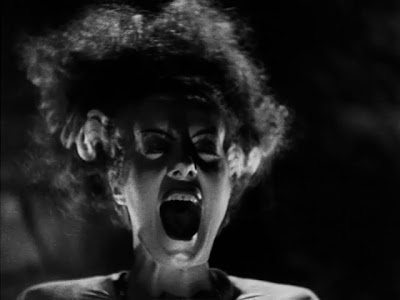
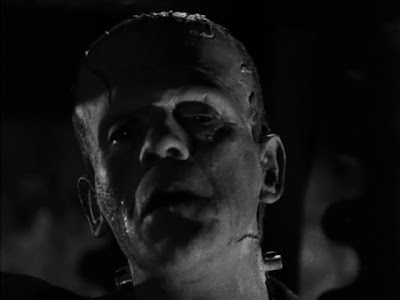
Both films are masterfully made. They look great - deep spaces, fluid camera movement, imaginative editing. Whale wasn’t as extravagant as Rouben Mamoulian, but he was no slouch - both films contain numerous bits of bravura filmmaking. Showy angles; Whale’s favorite move of tracking through walls; neat compositional tricks, echoes and rhymes across the films:


- and a handful of magnificent editing sequences. The monster’s introduction is the most famous of these - jump cutting straight in - but there are several remarkable instances. The introduction of the secondary characters, Elizabeth and Victor, for example - a series of fast cuts from closeups of a picture of Henry to a maid announcing Victor's arrival to Victor (coming into the room) to Elizabeth standing from her couch. He seems to like that kind of trick, especially when he can play it against longer, often moving shots. And it's all in service of the film, sometimes to the point of symbolism - the monster's crucifixion, for example:

But there are equally significant bits of editing - this one at the end, Frankenstein and his monster looking through a mill wheel at one another, cut so they blend into one another:


It's one of the more obvious moments of doubling in the film - Henry becoming the monster - but hardly the only one. It's a theme picked up from the book - the ways the monster becomes Henry's (Victor's, in the book) double, the ways he supplements or replaces him. Replaces him in his bedroom on his wedding day - in film and book - in one of the more obvious cases:

These two films are very interesting as adaptations - there's no doubt that they abandon pretty much everything in the book except the title, some of the names (though even those are changed), and the Creature that Frankenstein made out of dead bodies. But at the same time, it gets back around to many of the book's themes - the doubling of monster and Frankenstein; the fraught relationships of fathers and sons; and a certain attention to the development of the monster - it is a book about education, and that is a major theme of the films, as well. In fact, the dominant theme of the second one - education and sexuality. The monster is a pretty clear figure of the Id - and frequently seems to spark sexual moments - taking Henry's place in his wedding bed in the first one - the whole plot, basically, of the second one. Though there, the emphasis has shifted from the idea of the monster as a kind of unleashed Id to the idea of the monster as a character in his own right - and specifically, as a young man coming of age. Karloff, I believe, later criticized the decision to make the monster speak in the second film - but I think that is central to the point of the film. It is about his education and development - and the failures of the people around him.




They are, these two films, both masterpieces - together especially. It is a sequel that picks up from the first and develops its most interesting elements - that takes the pathos hinted at in the first and works it out at length. And - as I said in those Jekyll and Hide posts - because they are horror films, because Frankenstein's monster is a monster - the filmmakers are free to take a much more challenging approach. Their heroes don't have to be heroic; it is possible for there to be unhappy endings. It's liberating. And the results, here, are among the best films ever made.


